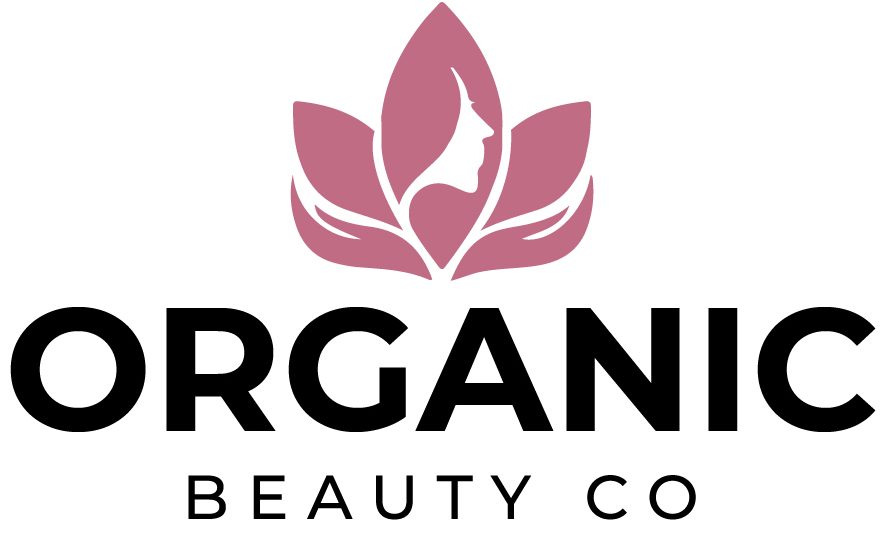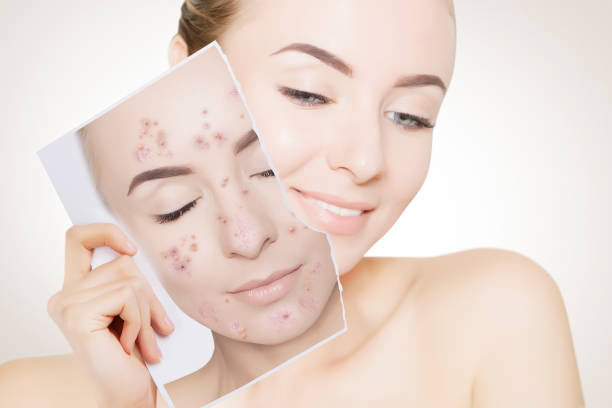It is common to hear that sun exposure can reduce the appearance of acne. While UV exposure can initially improve your acne appearance, it can also cause long-term damage to your skin and worsen your breakouts. Avoid this using the best sunscreen for acne-prone and oily skin, especially in summer. An oil-free, lightweight, and not comedogenic sunscreen is the best for oily or acne-prone skin. It won’t clog pores and cause breakouts. Look for sunscreens with at least 30 SPF and broad-spectrum protection. This protects against UVA and UVB rays in hot, sunny conditions.
Even if it is cloudy, applying sunscreen daily can prevent sunburns, slow skin aging, and help reduce your risk of skin cancer. It’s essential to use sunscreen and to protect your skin by wearing protective clothing. Please continue reading to learn why we don’t recommend that you fight acne with sun exposure and what we recommend instead.
Do More Sun Exposures Help to Fight Acne? The Basics
It is not true that sun exposure can cure acne. While UV rays can initially reduce inflammation and dry out pimples, they can also cause long-term skin damage. This includes premature aging, discolouration, and increased risk of skin cancer.
Sun exposure can also cause clogged pores which can worsen acne. To protect your skin and body from the harmful effects of the sun, you should use sunscreen. These are the reasons you shouldn’t expose your skin to direct sunlight. We also have tips for protecting your skin based on the type of acne. See the video below!
Sun damage
Sun exposure can cause skin problems, including inflammation. This can lead to acne. Many people believe the sun can reduce acne and dry out pimples. However, UV rays cause skin damage and increase the likelihood of breakouts. Sun exposure can cause your skin to produce more oil, leading to clogged pores and acne. Hyperpigmentation and other skin damage caused by the sun can also lead to skin problems.
Excessive oil production
Sun exposure can cause acne by stimulating the skin’s sebaceous glands to produce more sebum. Sebum, a type of oil, helps protect and moisturize the skin. However, excessive production can clog pores, causing breakouts. The skin’s sebaceous glands can go into overdrive when exposed to the sun, producing more oil than it needs. This can lead to oily skin and clogged pores. The sun’s heat can make your skin drier, increasing sebum production as your skin attempts to compensate.
Temporary effect
A common misconception is that sun exposure can improve acne appearance by drying out pimples and reducing skin color. Although it can temporarily relieve some symptoms, it does not address the root causes of acne, like excessive oil production or bacteria. Exercising in the sun for too long can worsen your acne by increasing skin inflammation and causing more damage. This can lead to more breakouts and scarring, which is tough to treat. Sun protection is an integral part of any acne treatment plan. It can prevent further damage and help other treatments work better.
Top Tips to Protect Your Skin From Sun Damage
Use sunscreen
Protecting your skin against sunburn is essential by covering it up with clothing. Avoid direct sunlight exposure during peak hours, when UV rays can be strong. Covering up with clothing is important to protect your skin from sunburns and other long-term damage. Wearing a hat protects your neck, ears and face. Long-sleeved shirts, pants and breathable shirts are also good options. It is important to find shade when you are outdoors, especially if the sun is shining. These simple steps will help you prevent sunburn, reduce your chance of skin cancer, and keep your skin healthy, young, and beautiful.
You may consider the
It blocks harmful UV rays, and makes your skin shiny. The lotion should be applied 20 minutes before you go out in the sun. It is recommended that you renew the layer every few hours. The gel is cool and lightweight.Lakme Sun Expert Ultra Matte Gel Sunscreen SPF 50 Pa+++
It has a non-sticky protective formulation that is perfect for Indian climate conditions. It’s one of the best options for oily skin. It spreads easily and leaves a matte finish.Shop Products
SPF is essential for cloudy days.
Apply a broad-spectrum sunscreen that has an SPF 30 or higher to your exposed skin before you go outside to protect it from sunburn. This will help prevent sunburn and premature ageing and reduce the chance of skin damage or pigmentation. Sunscreen should be applied generously and often, especially if you spend a lot of time outdoors or engage in sweat-inducing activities. To avoid exacerbated acne, use a sunscreen that is non-comedogenic and oil-free if you have oily skin. Remember that UV rays can penetrate through windows and clouds, so sunscreen should be applied even when it is cloudy or indoors.
Remember that sunscreen is not just for sunny days. Protecting your skin from UV rays is important even on cloudy or rainy days. You can choose a lower level product such as the
Simple Protecting Light Moisturizer with SPF15
This moisturiser is light and doesn’t contain any colour, perfume or harsh ingredients. It only contains skin-loving and protective ingredients to give it a smooth, nonshiny finish.Shop Products
Reapply sunscreen
To maintain your sunscreen’s effectiveness and protect your skin from the harmful UV rays, make sure you reapply every two hours. People with dry skin should remember to apply sunscreen every 2 hours. Sun damage can cause dryness, flakiness, redness, itching, and even worsen dry skin. You can use a sunscreen designed for those with dry skin. You may also want to consider moisturizing with SPF to protect your skin. These simple steps will help you protect your skin and keep it healthy.
Lakme SunExpert Ultra Matte Spray has SPF 50 PA++. It’s lightweight and doesn’t leave your skin feeling sticky or oily. It hydrates your skin and makes applying or renewing sunscreen easy. Shake the bottle, and spray it on your neck and face. To get a silky soft look, let it absorb.
How to Protect Your Skin Type
It doesn’t matter if you have dry or oily skin, protecting your skin from the sun is essential. Using high-quality sunscreen for both oily and dry skin types is necessary. However, choosing the suitable sunscreen cream for your skin type can be difficult. With the proper guidance and tips, you can find the sunscreen suitable for your skin type while still providing adequate protection.
Use the Best Face Sunscreen For Oily Skin to Get The Benefits
Sunscreen is essential for protecting oily skin against harmful UV rays. Dermatologists in India recommend the best sunscreen for oily skin. Lightweight and non-greasy sunscreens are the best for oily skin. They can be worn every day.
Protects skin from sunburns
Sunburns and skin damage can be prevented by using the best sunscreen for oily skin. What sunscreen is best for oily skin? It would be best if you looked for the best sunscreen to protect oily skin (SPF 50) and the best sunscreen to prevent skin damage.
Skin care that controls oily and acne, while maintaining skin health
Oily skin is more likely to develop breakouts if it has the best sunscreen. Dermatologists in India recommend the best face sunscreen for oily skin. It helps to keep your skin shiny and matte all day. Dermatologists in India recommend the best sunscreen for oily skin. It prevents skin breakouts and moisturizes.
Hydration that is lightweight and non-greasy
Gel or lotion-based sunscreens are best for oily skin because they provide light hydration and don’t feel heavy or greasy. Lightweight and non-greasy hydration is the best sunscreen in India for men with oily skin. It also protects your skin from pollutants and environmental stressors.
Sunscreen for dry skin: Benefits
Sun damage can cause dry skin to become more sensitive. This could lead to premature ageing and further dryness. Sunscreen can be used to protect your skin from sun damage and provide a variety of other benefits. Sunscreen is an effective way for dry skin to stay radiant, healthy, and youthful.
Prevents skin irritation
Sunscreen is important for protecting your skin from the sun’s harmful rays. Sun damage can lead to premature aging and dry skin. You can reduce the likelihood of sunburn, discolouration and other skin damage by applying sunscreen to your skin regularly. This can keep your skin looking younger, healthier, and more radiant over time.
Hydrates the skin
Sunscreen may offer more than protection against the sun for those with dry skin. Sunscreens often contain moisturizing ingredients such as glycerin or hyaluronic acids, which can help to hydrate dry skin. These ingredients help to prevent moisture loss and soothe dry patches. They also leave your skin soft and supple. A sunscreen that moisturizes your skin can help prevent further dryness, improve your skin’s overall health, and reduce the risk of sunburns.
Enhances skin texture
Sunscreen may be beneficial for dry skin by improving the texture. Sun damage can cause fine lines and wrinkles as well as uneven skin texture and tone. Sun protection products can reduce the sun damage to your skin and prevent age-related problems from worsening. Sunscreens can also contain vitamin C or niacinamide, which help to even out skin tone and make the skin appear brighter.
Q1: Why is it believed that sun exposure can help fight acne?
This can be due to a few factors. The first is that sunlight can dry out your skin, making it tanned. Skin inflammations might become less obvious after a sun session. However, this doesn’t mean that UV exposure will help your skin fight acne. Excessive oil production, scarring and premature ageing are all consequences of staying in the sun without SPF.
Q2 What is light therapy?
Light therapy to treat acne is an option that can be very promising for people with acne-prone skin. It targets the root causes of acne and does not cause side effects. Light therapy uses specific wavelengths to kill acne-causing bacteria and reduce inflammation. It can also improve skin texture. Light therapy isn’t like other acne treatments. It doesn’t use prescription medication or harsh chemicals, which can be costly and have undesirable side effects. It’s an effective, non-invasive treatment that can either be used alone or in conjunction with other treatments. Light therapy is a convenient and effective treatment option for acne.
Q3 What is the best sunscreen for oily skin in men?
You should look for sunscreens that are specifically designed for men. They should be oil-free in the European, Indian or Korean regions. This will ensure that your skin is not clogged with oil. For male skin, which is often oily, but still requires sun protection, choose a sunscreen with at least 30 SPF and a light, matte texture to control shine.

